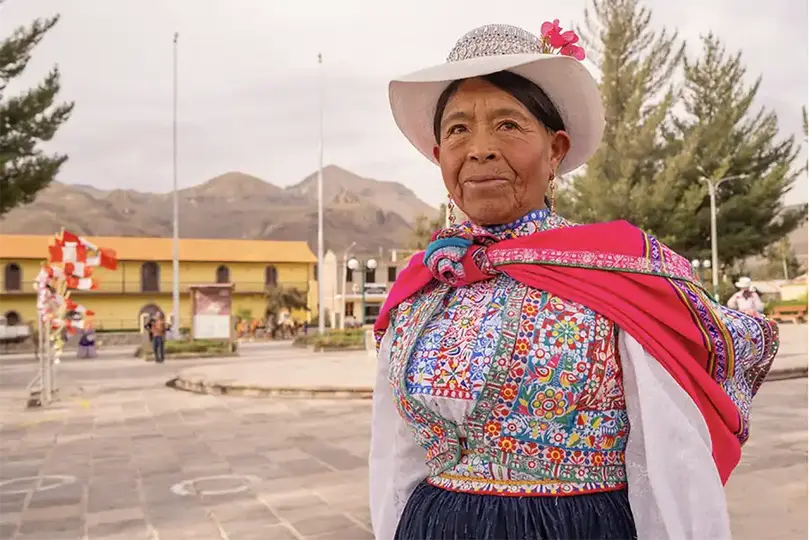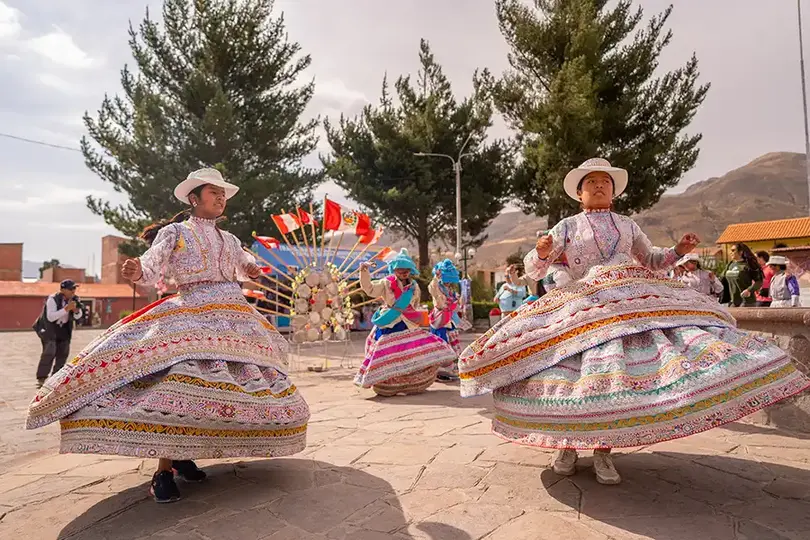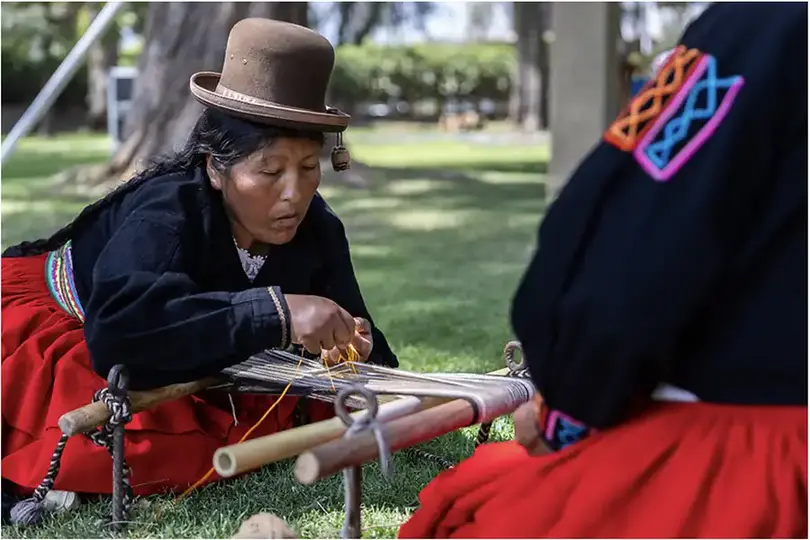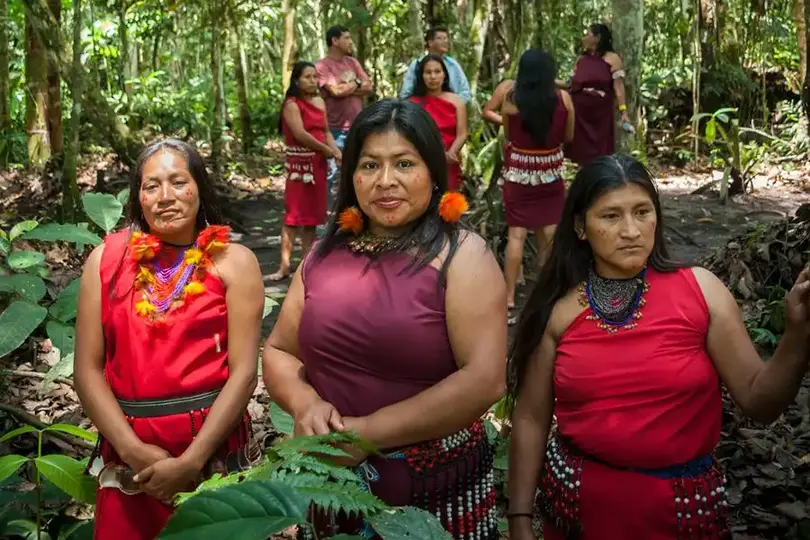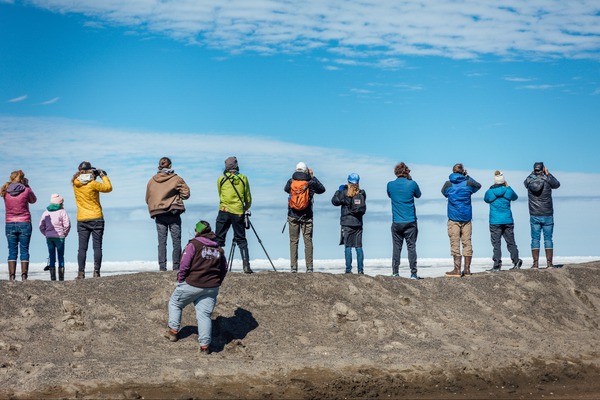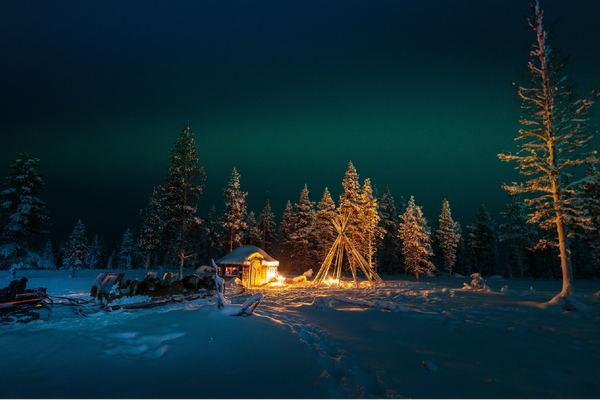Why the fate of Indigenous traditions is linked to tourism in Peru
Travelling through the Arequipa region, our writer discovers how tourism can have a profoundly positive impact on Indigenous women and their culture
In the small, mostly Indigenous, town of Andagua, in Peru’s Valley of the Volcanoes, we gather in a room just off the main plaza. At this point in the evening, the sun is gone and the air is flooded with an Andean chill, but the women are waiting for us, piping hot muña tea in hand.
Our group (part of the Adventure Travel Trade Association’s AdventureNEXT Peru event) sits down, ready for a presentation on the local tourism offerings. The women, dressed in colourful wool skirts, shawls, and hats, hand out the porcelain teacups, and I sip the earthy, mint-like herbal infusion, which has been tempered heavily with sugar. When one woman sees that there aren’t enough cups for each of us, she raises her eyebrows and rushes over to whisper to the others, then approaches our group apologetically, taking half-empty cups to wash so that everyone can have a taste. I trade a smile with her, recognising how she takes pride in making us feel welcome.
Indigenous people comprise about 26% of Peru’s population, and many of them live in small villages like Andagua scattered throughout the Andes and Amazon. Throughout the fam trip in Peru’s Arequipa region, I encounter Indigenous women who play important roles in tourism – later that night, some of the women host members of our group for a homestay. In the town of Yanque, a woman grabs me by the elbow and sweeps me into the traditional Wititi dance of the Colca Valley, whirling her skirt that’s embroidered with blue and gold threads. When we stop at the Cruz de Condor lookout over the Colca Canyon, I see women sitting on the ground and weaving dyed alpaca wool into colourful textiles with practised hands, enticing tourists to purchase their work.
In Peru, Indigenous women are getting more involved in the tourism industry…a change that couldn’t come soon enough. As of 2017, only 27% of Indigenous women in the country were gainfully employed, as opposed to 47% of Indigenous men. As one Peruvian woman tells me during the ATTA conference, there’s a pervasive belief that “women should only be cooking or herding llamas.”
But now the tide is turning, and mostly thanks to the tourism industry – the first-ever female porters on the Inca Trail made history in 2017, sparking a slew of changes in the years since. Now, many tour companies in Peru rely on female porters, and Indigenous-owned Alpaca Adventures just launched its first-ever women-only tours of Machu Picchu, in which everyone from the guests to the cooks, porters, and tour guides are women.
Intrepid Travel also makes an effort to support Indigenous women in Peru, and many of their tours stop through Andean villages to showcase traditional weaving practices or visit businesses that provide economic opportunities to women.
One such business is AMA, a restaurant and boutique in Urubamba, a small town in the Sacred Valley. AMA was created by Julio Sanchez Hernandez, who says: “When I came to the Sacred Valley, I saw a lot of opportunities. I started AMA with one question: what is the reason these opportunities aren’t for everybody?”
AMA employs single mothers from small Indigenous villages, providing them with a flexible schedule and a safe place to bring their children. Yudi Castro, a single mother from the town of Yanahuara who works in the kitchen and garden, tells me: “I pretty much didn’t have work before, because I had to think of my kids and myself.” Now that she works from 11am to 7pm for AMA, Castro can make a living to support her family while also having more time for her children and herself — “AMA totally changed my life.”
Tourism doesn’t only give Indigenous women in Peru a way to make money, but also acts as an incentive to preserve ancient traditions. Like in the Indigenous Awajún community of Shampuyacu, located in the Amazon in the north of the country, where there’s a living culture tourism project called Forest of the Nuwas.
After losing much of their natural habitat to deforestation, the women of the Shampuyacu community banded together to conserve an area of the forest where they could tend to medicinal plants to harvest for tea. As Cecilia Sejekam Wajai, Shampuyacu community member and Forest of the Nuwas administrator, explains during a keynote speech at the ATTA event, bringing tourists to visit the community creates an incentive to “mantener el pasado vivo,” keep the past alive.
Since the Forest of the Nuwas has started welcoming tourists to participate in community events and the harvesting of medicinal plants, Wajai says the women of Shampuyacu finally have the means to invest in their families. “Not only is their present changing, but also their future.”
My time in Peru shows me that the future of tourism is linked to the future of Indigenous women. While these and other attractions give travellers a sense of authentic Peruvian culture, the Indigenous women who power them get to maintain their cultural heritage and achieve financial freedom. As Yudi Castro puts it: “La porta està abierta.” The door is open.
Sign up for weekday travel news and analysis straight to your inbox

Alexandra (Zanny) Steffgen
Supplier Directory
Find contacts for 260+ travel suppliers. Type name, company or destination.
